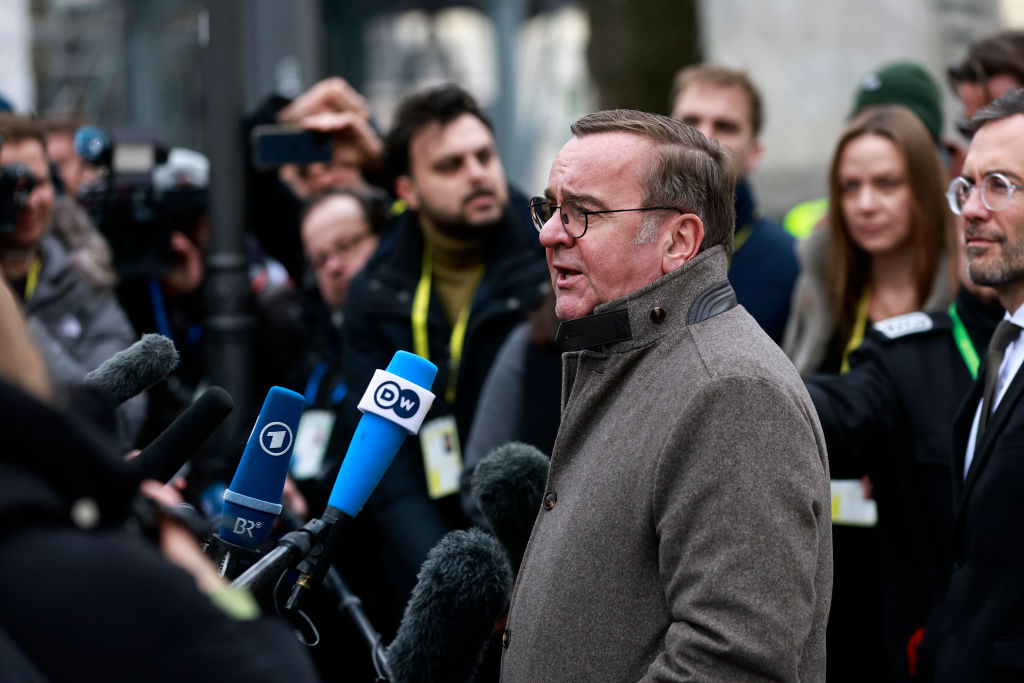It does not take a political scientist to understand that the Western populist-right has been on a roll lately. In literally every corner of the Western world – from the United States to the Black Sea to the British Isles to north-eastern Europe to the Mediterranean – populist-right parties are winning elections. But while this string of electoral victories has been exciting, they have also been just a string of electoral victories.
And in politics, like gravity, what goes up must come down. These parties will not win forever. The fact that Italian Prime Minister Giorgia Meloni’s party’s poll numbers have been so high – at 30 per cent – for over two years is, in political time (particularly Italian political time), something close to an eternity. The Dutch right-wing coalition, cobbled together after long negotiations, is already in hot water; if an election were to be held today, the results would be a jump ball, the referee tossing the ball between two opposing players. Hungarian Prime Minister Viktor Orbán, whose Budapest was a light in the dark of the Joe Biden interregnum, is likewise in a tight race against his opposition. And in America, President Donald Trump’s victories, while impressive, have been somewhat close affairs.
Elsewhere, a surge in support has not led to governing. The French populist-right National Rally was the clear first-place finisher in last year’s parliamentary elections in the popular vote – but due to France’s political system, it placed third in the seat count. And while the German AfD and the British Reform Party both have passed their respective governing parties in polling, both countries will not have elections until 2029, meaning both will need to keep up their momentum until the decade is nearly out.
And this is hard to do, particularly if the issues which brought these parties to the political fore – such as migration – disappear from the scene. The Republican Party is already facing this problem: The Trump administration has had such success in cutting down the number of migrant arrivals that concerns over immigration have plunged. If establishment parties across the West get wise and “steal” the key issues which have motivated populist surges, keeping the momentum going may be an impossibility.
Unless the Western right adopts another course: turning to more than just electoral victories by uniting in a common defence of Western civilisation.
This is a theme which is rapidly gaining in popularity. When I first coined the term “Western nationalism” in a discussion of Italian Prime Minister Giorgia Meloni’s politics in 2023, the Western populist Right was still on uneven footing. Having just emerged from COVID, which saw a brief downturn in populist-right victories, the future was uncertain. But now, the populist-right is winning consistently, and figures across the West are talking about Western civilisation. Meloni and Trump recently discussed making “Western civilisation great again”, as has Argentina’s Javier Milei. Hungary’s Orbán also has hammered repeatedly at the importance of defending our common civilisation.
Bringing Western populist-right parties together around this theme would enable those parties and figures to come together under a common banner without giving up the importance of things like national sovereignty, nor would they need to agree on the litany of things they currently disagree on. Families live in separate homes, own separate properties, and have strong disagreements – but they can still come together as a family, united by a common history. It would give an inspirational goal to work toward, a positive to offset the negative of constantly attacking the establishment (which, though deserved, sometimes puts off some voters).
But currently, there are effectively no attempts being made to bring the Western Right together. There is also not a singular motivating message to the Western populist-right movement, beyond “Establishment bad.” Which, as previously discussed, will only get any electorally-based movement so far.
There is also no plans for what to do when the electoral successes inevitably pause, or are dried up – something that will inevitably happen. When progressive parties are thrust into the political wilderness, they have massive networks to fall back on: NGOs, media groups, think-tanks. The Western populist-right mostly has a network of podcasts. Which are helpful! But not enough to sustain the movement should the worst happen.
The answer is to create a new organisation, perhaps called “The Committee to Save Western Civilisation.” Such an organisation would have no power over the parties or individuals involved. Instead, it would be an organiser, with the goal of simply getting people talking and sharing strategies.
There would be, primarily, three goals such an organisation could work toward.
The first would be the organising of annual conferences to which representatives of all major Western populist-right parties would be invited, a “Summit for Western Civilisation.” This would differ from organisations like NatCon, as it would be designed with the goal of perpetuating and preserving Western civilisation in mind. The locations could change – the first perhaps in Washington, the second Budapest or Rome, etc. Speakers and panellists would engage in and highlight the major discussions needed. On the side-lines, policymakers and analysts could swap strategies, and successful parties could share what went right for them (and could elaborate on pitfalls to avoid). These discussions could spark further waves, in the form of offshoot events, the creation of think-tanks, or other educational/advocacy organisations.
The second goal would be a publication. Such a publication could be a one-off, or, even better, annual (perhaps coinciding with each of conference). But it is important to have something “real,” literature which can be handed out or made accessible online. Such a publication could be small: perhaps a statement of principles accompanied by essays on the past, present, and future of Western civilisation from movers and thinkers across the West, from Poland to the western United States.
The third would be overseeing a staffer/student exchange program between various Western think-tanks and participating political parties. American Republicans could find themselves working with allies in Brussels or Budapest, or the reverse. European conservatives could find themselves spending a semester interning at the Republican National Committee. Populist-right media could participate in the programme as well, with staffers or interns at one organisation spending a few months learning in others around the West.
None of this would erase the clearly national character of each populist-right party. Likewise, none would force a specific policy on anyone. But it would bring together a fragmented right. In doing so, it would encourage communication between parties which, though it has been a decade since the populist wave began, have had perilously few discussions.
Right now, the Western populist-right – at least those who care about Western civilisation – are split. Within Europe, there are at least three truly conservative European parliamentary groupings. And while the Republican Party, being led by individuals such as President Trump and Vice President JD Vance, has broken away from its early 2000s dalliance with globalism, it is still an ocean away and has not connected much to its European counterparts. If the movement remains divided, pieces will be chipped away one by one.
But if it were to become united under the banner of saving Western civilisation, it could change the tenor of American and European political thought for decades to come.





Algeria tells France they are not taking back violent migrants and France is powerless